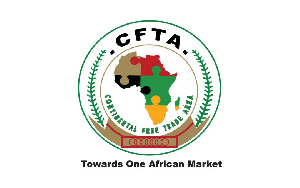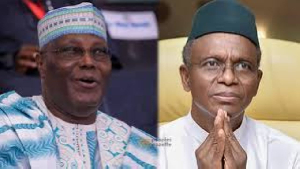Public and private sector stakeholders at the West Africa Business Summit have called for stronger coordination, fair trade systems, and support for local production to maximise the benefits of the African Continental Free Trade Area.
According to a statement, the stakeholders, speaking at the WAES 2025 Summit held under the theme ‘Overcoming Barriers to Harnessing AfCFTA for Stronger Intra-Regional Trade in West Africa,’ featured high-level contributions from government officials, business executives, and policy experts across the subregion.
Former ECOWAS Chairman, President Bola Tinubu, described the summit as “a bold step toward a prosperous, integrated West Africa powered by trade, innovation, and our most valuable asset: our people.” He added, “I invite the world to join us in building a stronger, more unified, and globally competitive West Africa.”
During a key panel session moderated by Bank of America’s Head of Sub-Saharan Africa, Mrs. Yvonne Ike, the Minister of Trade and Investment, Dr. Jumoke Oduwole; the Republic of Benin’s Minister of Industry and Commerce, Shadiya Alimatou Assouman; Chief Executive Officer of Sterling Bank, Abubakar Suleiman; Vice Chairman of Tropical General Investments Group, Farouk Gumel; and Chief Executive Officer of IRON Capital Partners, Jubril Enakele, emphasised the need to shift focus from border policies to grassroots trade realities.
Gumel challenged the prevailing narrative on intra-African trade barriers, stating, “We need to understand the difference between Africa and Africans. It is a tribal continent. Tribal connectivity is the driver of African trade today. So, when you start to bring in paperwork and the African design, which are countries and borders, you start to look at trade in a different way.”
He added that informal trade networks already facilitate the movement of goods and should not be undermined by overregulation: “There are no barriers. There is free trade. All we need to do is make it fair. And to make it fair, we have to talk to manufacturers. For you to have a fair African trade policy, it has to be fair to the producers; those producers create jobs.”
Sterling Bank boss, Suleiman, pointed to the high cost of payments as a major obstacle to scaling cross-border trade for SMEs. “The cost of payment today causes friction in the continent. We need a framework to know all the small traders; only then can you bring in incentives that would allow them to grow,” he said.
Trade Minister Oduwole reaffirmed Nigeria’s commitment to AfCFTA and urged regional actors to synchronise efforts, noting, “The most catalytic element for this audience is coordination. Coordination at the national level to make sure that the implementation, the operationalisation of national and regional trade, is well coordinated.”
She explained that West Africa has to be extremely coordinated in what it is doing and focused on the impact.
Asouman of the Republic of Benin echoed calls for harmonisation of industrial policies, stressing that without joint implementation of ECOWAS and AfCFTA frameworks, progress would remain slow.
Participants at the summit agreed that Africa’s economic transformation depends not only on removing trade barriers but also on boosting local capacity and value addition. They said sustainable prosperity will only come when countries produce what they trade.
“There is a consensus that West Africa cannot trade what it does not produce,” a closing statement from the summit read. “From smallholder farmers to industrial processors, empowering those who create products is critical to ensuring AfCFTA delivers real jobs and economic transformation.”
WAES 2025 ended with renewed calls for practical reforms, shared infrastructure, and continent-wide production-driven policies to strengthen the region’s global competitiveness and reduce dependence on foreign supply chains.
Business News of Friday, 11 July 2025
Source: www.punchng.com













